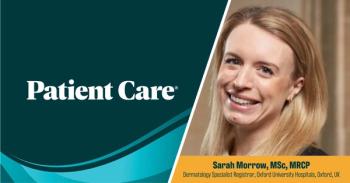
Hospital Readmissions Higher for HIV-infected Adult Patients
Thirty-day hospital readmission rates in adults infected with HIV are driven largely by CD4+ count and length of stay.
Hospital readmissions are a major contributor to the high cost of healthcare in the United States.1 The financial impact of the readmission rate finds this metric increasingly used to benchmark hospital performance and to guide reimbursement. For instance, Medicare identified 2225 hospitals, about two-thirds of the nation’s hospitals, that will have payment reduced starting October 1, 2013 as a penalty for excess 30-day readmissions.2 There are a number of factors that may impact readmissions among HIV-infected patients including multiple HIV complications, drug toxicities, and social stigma.3 Available data to date on 30-day readmissions in HIV-infected patients have been limited to a single-site study, which reported a rate of 25.2%.4
In a recent study published in the journal AIDS,3 researchers set out to determine 30-day readmission rates using data from the HIV Research Network, a research collaboration that includes 12 sites providing longitudinal HIV care to adult patients in 11 US cities.3 In this multisite cohort, the 30-day hospital readmission rate among patients involved in outpatient HIV care was 19.3%--significantly higher than the 13.3% readmission rate reported for the general population of 18- to 64-year-olds. It was also noteworthy that patients with AIDS-defining illnesses (ADIs; 9.6% of index hospitalizations) and non-AIDS-defining infections had higher rates of readmission-26.2% and 16.6%, respectively.3
Factors independently associated with higher readmission rates included lower CD4+ cell count (adjusted odds ratio 1.80 [1.53–2.11] for CD4+ count <50 cells/µL vs ≥ 351 cells/µl), longer length of stay (1.77 [1.53–2.04] for ≥9 days vs 1 to 3 days), and ADIs.3 Interestingly, obtaining an outpatient follow-up clinic visit was not associated with lower readmission risk (adjusted hazard ratio 0.98 [0.88–1.08])3 suggesting that the high readmission rate was inherent in the nature of advanced HIV-infection and its associated illnesses.
The importance of these findings to physicians in primary, family, and general practice lies in the closing line of the study’s abstract which states: “Preventing or recovering from severe immune dysfunction may be the most important factor to reducing readmissions.”3
References:
1. Friedman B, Basu J. The rate and cost of hospital readmissions for preventable conditions. Med Care Res Rev. 2004;61:225-240.
2. Rau J. Armed with bigger fines, Medicare to punish 2,225 hospitals for excess readmissions.
3. Berry SA, Fleishman JA, Yehia B, et al, for the HIV Research Network. Thirty-day hospital readmission rate among adults living with HIV. AIDS. 2013;27:2059-2068. (
4. Nijhawan AE, Clark C, Kaplan R, Moore B, Halm EA, Amarasingham R. An electronic medical record-based model to predict 30-day risk of readmission and death among HIV-infected inpatients. J Acquir Immune Defic Syndr. 2012;61:349–358.
Newsletter
Enhance your clinical practice with the Patient Care newsletter, offering the latest evidence-based guidelines, diagnostic insights, and treatment strategies for primary care physicians.































































































































